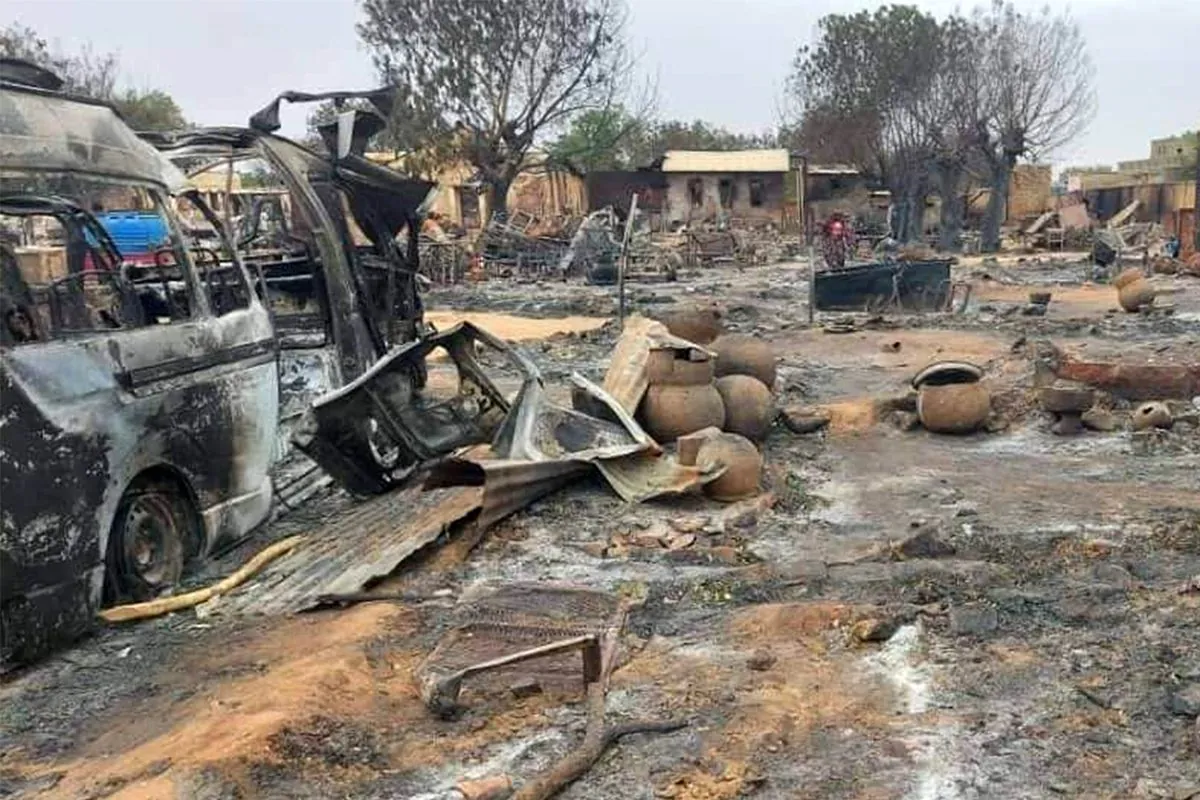In a tragic development of Sudan's ongoing conflict, the Rapid Support Forces (RSF) launched a devastating attack on the village of Galgani in the central Sennar province. The assault, which occurred in early August 2024, resulted in at least 85 fatalities, including women and children, according to local authorities and residents.
The RSF, a paramilitary group that evolved from the notorious Janjaweed militias of Darfur, reportedly began their incursion into Galgani in late July. The situation escalated when villagers resisted attempts to abduct and sexually assault women and girls. In response, RSF fighters "indiscriminately opened fire on the village's unarmed residents," as stated by Sudan's Foreign Ministry.
Eyewitnesses described a harrowing scene as hundreds of RSF fighters stormed the village, armed with automatic rifles and heavy weapons. The attackers engaged in widespread looting and burning of houses and public properties. A local healthcare worker, speaking anonymously due to safety concerns, reported that the medical center had received at least 80 bodies, including 24 women and minors.
This latest atrocity is part of a broader pattern of violence that has plagued Sudan since April 2022, when tensions between the military and the RSF erupted into open conflict. The 28-month-long struggle has pushed Africa's third-largest country to the brink of famine and created the world's largest displacement crisis. According to the International Organization for Migration, over 10.7 million people have been forced to flee their homes, with more than 2 million seeking refuge in neighboring countries.
The conflict has been marked by numerous human rights violations, including mass rape and ethnically motivated killings, which the UN and international rights groups have classified as war crimes and crimes against humanity. The situation is particularly dire in the western region of Darfur, where famine was confirmed in a camp for displaced people in July 2024.
Sudan's complex history of political instability and civil wars has contributed to the current crisis. Since gaining independence in 1956, the country has experienced multiple conflicts and long periods of military rule. The split of South Sudan in 2011 and the ongoing Darfur conflict, which began in 2003, have further complicated the nation's path to stability.
Amidst this turmoil, international efforts to broker peace continue. In August 2024, the United States led initiatives to resume talks between the military and the RSF in Switzerland. However, these negotiations face significant challenges, with the military boycotting the discussions. Diplomats from Saudi Arabia, Egypt, the United Arab Emirates, the African Union, and the United Nations are participating in the talks, hoping to find a resolution to the devastating conflict.
"The RSF remains here ready for talks to start; SAF needs to decide to come."
As Sudan grapples with this ongoing crisis, the international community remains concerned about the country's future. The conflict has not only resulted in immense human suffering but has also disrupted Sudan's economy, which was already facing severe challenges, including high inflation and food insecurity.
The rich cultural and archaeological heritage of Sudan, including its ancient Nubian pyramids, stands in stark contrast to the current devastation. As the country struggles to find a path towards peace, the world watches, hoping for an end to the violence and a chance for Sudan's diverse population of over 500 ethnic groups to rebuild and recover.
